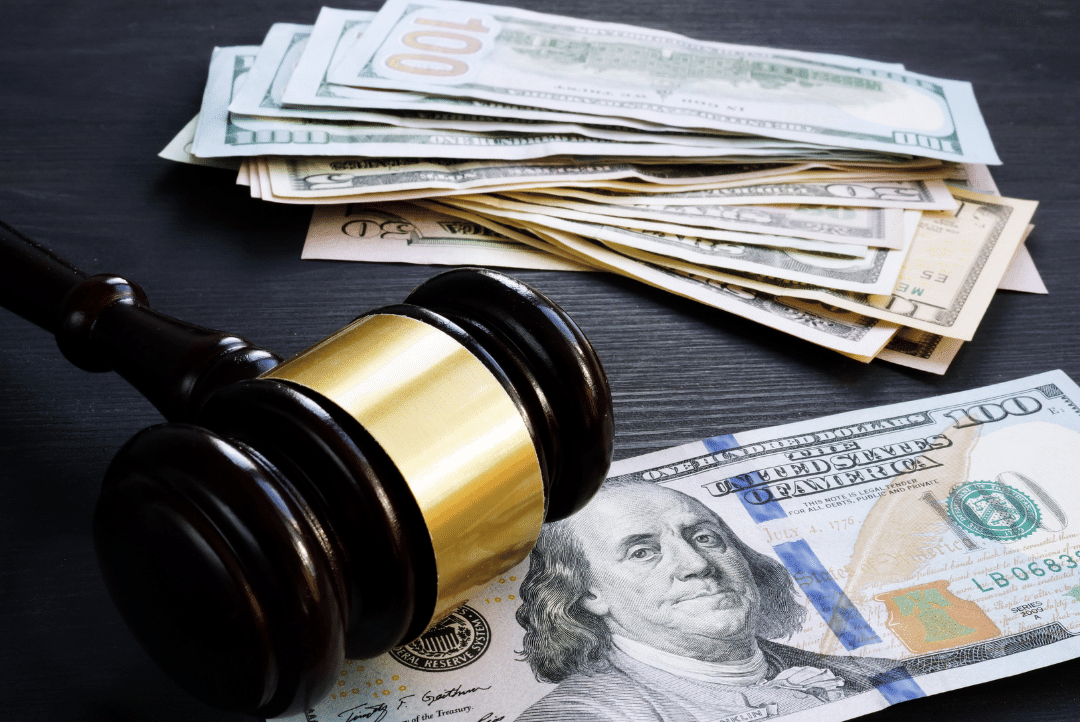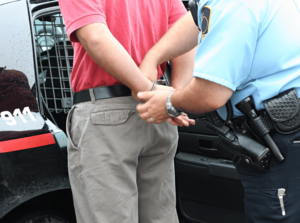If you live in California and you’re caught and accused of a crime, it can or might not be simple to be released from jail. While many people detained on suspicion of perpetrating misdemeanors are released on their own recognizance, for suspects accused of major crimes, paying cash bail may be the only way to avoid jail time.
Of course, there are many questions revolving around the concept of cash bail, such as “how much is the sum?”, “Can I be released without bail?”, or “can the court refuse to take cash bail?” We’ll answer all of that in this article. But, first, let’s see how bails work in California.
Bail in California
Bail is the sum of money that you or a third party posts as a guarantee that you will attend court for all upcoming hearings. You can avoid jail time while awaiting your court dates by posting bail.
You have two options for posting bail: cash or a bond from a bail bondsman. Not all crimes call for bail. A court will consider the crime’s severity and your prior criminal record when setting your bond amount. Additionally, you can use your assets as collateral for bail bonds.
The whole bail payment will be refunded to you if you appear in court for all of the upcoming appearances. A bail bonds provider would normally charge a percentage of the cash bail sum for the service of depositing your bail.
The Amount of Bail in California
In California, the offense and the court in which the case was filed will determine the bond amount. In California, each county has created its own set of charges and bond levels. While $20,000 and $50,000 are more normal bond amounts for less serious charges, in this state, bail can go as high as $1 million or more in most major crimes.
If a person in Southern California cannot pay the bond or feels that their bail amount is unreasonable or exorbitant, an attorney and a bail bonds provider can help. The accused and his or her lawyer can petition the court to lower the bond amount or to completely waive bail and free the defendant on their own recognizance In this state, judges have a lot of freedom to set, alter, remove, or reject bail for a defendant.
The severity of the alleged offense, the defendant’s criminal history, the probability to show up for court on time, and public safety are all things that a judge in California will take into account when setting bail.
The Highest Court Ends Cash Bail For Those Who Can’t Afford it
Based on the highest court’s recent ruling, no judge can set bail without considering the defendant’s means to pay the bail sum. If the defendant cannot afford to pay (even if it’s a cheap bail bond), the court must release them, unless they are considered a danger to society.
Reformers have lauded the ruling as a crucial first step in putting an end to prejudice against underprivileged and disenfranchised groups in the criminal justice system. Judges can no longer imprison defendants without “clear and convincing” proof that they pose a flight risk or a threat to the community. Moving ahead, you may anticipate that judges and prosecutors will examine this matter much more closely.
Can the Judge Raise the Bail Sum?

You might not be aware of the fact that a court in California has the authority to raise a defendant’s bond amount if the judge feels that doing so is necessary. A judge could decide that a greater bond sum is necessary if the state presents additional data or evidence to the court in response to a defendant’s request for bail reduction.
In cases of serious felonies, a judge will often not lower a defendant’s bond sum below the minimum amount set by that jurisdiction. If this were the case, the court would need to be convinced that there were “unusual circumstances” or “good reason” for the reduced bond sum.
Can You Pay a Fraction of the Bail?
Before you are allowed to leave custody, the whole bail sum must be posted, either by a cash payment or a bond. Before posting the bond and helping you leave jail, bondsmen often want up to 10% of the bail sum. This sum may change based on your risk of fleeing and the bail sum.
How Can I Be Released Without Bail?
If someone is charged with a minor, non-violent crime or misdemeanor, they can be released on their own recognizance. If they don’t pose a high risk, the court can choose to free them regardless of the bail amount.
Can the Court Deny Bail?
Yes, in some severe cases involving severe violence or sex crimes, the judge has the power to deny bail, regardless of the fact that it’s a cheap bail bond or not. The court could choose to refuse you bail if you have been deemed guilty of this type of crime and there is strong evidence that you would harm someone if freed.
Posting Cash Bail For Those Who Can Afford it
Paying the entire bail amount in cash is the simplest way to post bail. Cash bail payments are uncommon simply because few people can easily write a personal check for the bail amount. Bail is always costly.
The majority of people use a bail bondsman to get a bail bond, however, you can pay the entire bail sum in cash if you have the means to do so. Typically, a bail bondsman will lend a defendant the whole bail sum in exchange for a percentage upfront, nonrefundable charge.
Once the case is closed and the defendant hasn’t lost the bond by skipping court or breaking a bail term, the money is given back to them.
A certified cashier’s check, money order, or traveler’s check can all be used to cover the whole bail sum. In rare circumstances, a personal check may be accepted by the detaining authority or the court clerk.
Can The Court Refuse To Take Cash Bail?
If you decide to pay the bail fully in cash and the court refuses to take it, it may be because the source of funds is under question. This is particularly the case with large sums and organized crime.
For instance, if you’re a defendant in an embezzlement or a money laundering case and someone posts a large sum as bail for you, the court may question the fund’s source. In such cases, you have to provide evidence that the source is clean.
A much better solution would be to go through a reliable bail bonds provider with flexible payment plans that can get the process started quickly. Fortunately, at Escondido Bail Bonds, we offer all of these benefits and more to help clear the process for you.
Need help posting bail? We can help
Bail is the temporary release of an accused person awaiting trial, sometimes on the condition that a sum of money is lodged to guarantee their appearance in court.
Southern California Jails We Service:
- Riverside County
- Los Angeles County
- Orange County
- San Bernadino County
- Santa Barbra County
- Ventura County
- Imperial County
Escondido Bail Bonds have the cheapest bail bonds with great services in all of Southern California and have a network of Licensed Bail Agents within 5 miles of every Jail. Please contact us with any questions in regard to the bail process or inmate information.
*Disclaimer: Every effort has been made to ensure the accuracy of this publication at the time it was written. It is not intended to provide legal advice or suggest a guaranteed outcome as individual situations will differ.




